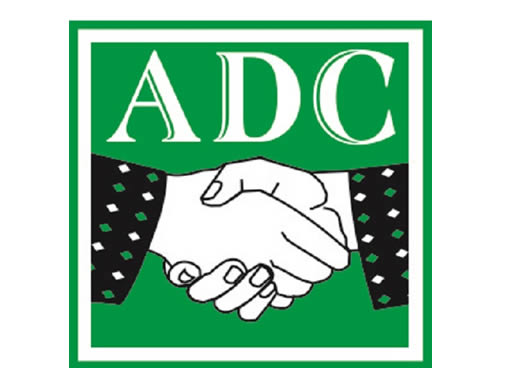By Atoyebi Nike
A political tremor shook the nation’s capital Wednesday as former Vice President Atiku Abubakar, Labour Party’s Peter Obi, ex-Senate President David Mark, and a host of political heavyweights officially adopted the African Democratic Congress (ADC) as the united platform to unseat President Bola Tinubu in 2027.
What started as hushed alliances in backrooms and hotel lobbies exploded into the public arena at the Shehu Musa Yar’Adua Centre in Abuja. The event marked the official unveiling of the coalition’s new political home a move critics say could realign Nigeria’s fractured opposition.
“This is no ordinary coalition,” said David Mark, who was unveiled as the ADC’s interim national chairman. “It is a national rescue mission. Nigeria is slipping into dictatorship, and we cannot watch idly while democracy crumbles.”
Joining Mark on the interim leadership team is former Osun State Governor Rauf Aregbesola, who takes up the role of national secretary a pairing few would have imagined even a year ago.
The lineup of attendees read like a who’s who of Nigeria’s political elite: former governors Nasir El-Rufai, Rotimi Amaechi, Gabriel Suswam, Aminu Tambuwal, Liyel Imoke, and Celestine Omehia, as well as former ministers, senators, and party leaders. Media mogul and PDP chieftain Dele Momodu was also spotted at the event.
“Nigerians are hungry, insecure, and hopeless,” said Amaechi, who confirmed he resigned from the APC a night before. “This is not just about changing parties. This is about changing Nigeria.”
Not Everyone Is Celebrating
But the coalition move hasn’t gone down well with everyone not even within the ADC itself.
Dumebi Kachikwu, the ADC’s 2023 presidential candidate, slammed the takeover, describing it as an “elite hijack” by “tired geriatrics” seeking to recycle failed ambitions.
“They burned the house and now claim to be the fire brigade,” Kachikwu said in a scathing statement. “This is not a rescue mission. It’s a ‘chopping must continue’ mission by men who have ruled and ruined Nigeria for decades.”
A faction of the ADC, calling themselves “Concerned Stakeholders,” also rejected Aregbesola’s appointment, calling it unconstitutional and undemocratic. “This party is not a one-man project,” they declared, warning against what they termed a forced coalition narrative.
In response, founding ADC chairman Ralph Nwosu threw down the gauntlet: “Anyone opposing today’s decision is not a member of our party. We’re not apologizing for this bold step.”
PDP Draws a Line, APC Scoffs
The opposition within the PDP is equally fiery. Acting National Chairman Umar Damagum insisted the PDP remains intact and will not tolerate members undermining the party under the guise of coalition building.
“There will be consequences,” Damagum warned at a press conference, signaling possible disciplinary actions against defiant party bigwigs like Atiku and David Mark.
Meanwhile, the ruling All Progressives Congress (APC) dismissed the coalition as a gathering of “recycled politicians” with no fresh ideas.
APC spokesperson Bala Ibrahim said: “These are the very people who ran Nigeria into the ground. They’ve been defeated before, and they’ll be defeated again. Nigerians won’t be fooled.”
Can the Coalition Survive?
While the movement boasts an impressive lineup of political veterans, its sustainability remains in question. Internal power struggles, differing party loyalties, and unresolved PDP rifts could test the unity of the alliance.
Even PDP governors have distanced themselves from the coalition, reaffirming that the party has no plans to merge or adopt another platform for 2027.
Still, supporters argue that with Tinubu’s economic reforms triggering inflation and hardship, the timing for a broad opposition front couldn’t be better.
“This isn’t just a coalition,” said Aregbesola. “It’s a movement to restore Nigeria’s soul.”
The Bigger Picture
Beyond party squabbles, Nigerians watching from the sidelines are eager for substance over slogans. With banditry, unemployment, and inflation squeezing daily life, the 2027 elections may come down to more than just coalitions but to who can offer real solutions.
